Top 10 revolutionary scientific theories
Most scientific fields have been made over with a revolutionary theory at least once in recent centuries. Such makeovers, or paradigm shifts, reorder old knowledge into a new framework. Revolutionary theories succeed when the new framework makes it possible to solve problems that stymied the previous intellectual regime. Here are my favorite revolutions. I’m hoping for more before I die.
10. Information theory: Claude Shannon, 1948
It’s not exactly the most revolutionary theory, since there really wasn’t a predecessor theory to revolutionize. But Shannon certainly provided the mathematical foundation for a lot of other revolutionary developments involving electronic communication and computer science. Without information theory, bits would still be just for drills.
It’s not exactly the most revolutionary theory, since there really wasn’t a predecessor theory to revolutionize. But Shannon certainly provided the mathematical foundation for a lot of other revolutionary developments involving electronic communication and computer science. Without information theory, bits would still be just for drills.
9. Game theory: John von Neumann and Oskar Morgenstern, 1944 (with important embellishments from John Nash in the 1950s)
Developed for economics, where it has had some successes, game theory didn’t quite completely revolutionize that field. But it has been widely adopted by many other social sciences. And evolutionary game theory is an important branch of the study of evolutionary biology. Game theory even applies to everyday activities like poker, football and negotiating for higher pay for bloggers. There is also even such a thing as quantum game theory, which is bound to revolutionize something someday. John Nash won a Nobel Prize for his contributions to game theory, and his troubled life inspired the excellent book A Beautiful Mind. But don’t expect to learn anything about game theory by watching the movie version.
Developed for economics, where it has had some successes, game theory didn’t quite completely revolutionize that field. But it has been widely adopted by many other social sciences. And evolutionary game theory is an important branch of the study of evolutionary biology. Game theory even applies to everyday activities like poker, football and negotiating for higher pay for bloggers. There is also even such a thing as quantum game theory, which is bound to revolutionize something someday. John Nash won a Nobel Prize for his contributions to game theory, and his troubled life inspired the excellent book A Beautiful Mind. But don’t expect to learn anything about game theory by watching the movie version.
8. Oxygen theory of combustion: Antoine Lavoisier, 1770s
Lavoisier did not discover oxygen, but he figured out that it was the gas that combined with substances as they burned. Lavoisier thereby did away with the prevailing phlogiston theory and paved the way for the development of modern chemistry. It was a much safer revolution for Lavoisier than the political one that soon followed in France, so revolutionary that Lavoisier lost his head over it.
Lavoisier did not discover oxygen, but he figured out that it was the gas that combined with substances as they burned. Lavoisier thereby did away with the prevailing phlogiston theory and paved the way for the development of modern chemistry. It was a much safer revolution for Lavoisier than the political one that soon followed in France, so revolutionary that Lavoisier lost his head over it.
7. Plate tectonics: Alfred Wegener, 1912; J. Tuzo Wilson, 1960s
Wegener realized that the continents drifted around as early as 1912. But it wasn’t until the 1960s that scientists put the pieces together in a comprehensive theory of plate tectonics. Wilson, a Canadian geophysicist, was a key contributor of some of the major pieces, while many other researchers also played prominent roles. (Keep in mind that plate tectonics should not be confused with Plates Tectonic, a good name for a revolutionary science-theme restaurant.)
Wegener realized that the continents drifted around as early as 1912. But it wasn’t until the 1960s that scientists put the pieces together in a comprehensive theory of plate tectonics. Wilson, a Canadian geophysicist, was a key contributor of some of the major pieces, while many other researchers also played prominent roles. (Keep in mind that plate tectonics should not be confused with Plates Tectonic, a good name for a revolutionary science-theme restaurant.)
6. Statistical mechanics: James Clerk Maxwell, Ludwig Boltzmann, J. Willard Gibbs, late 19th century
By explaining heat in terms of the statistical behavior of atoms and molecules, statistical mechanics made sense of thermodynamics and also provided strong evidence for the reality of atoms. Besides that, statistical mechanics established the role of probabilistic math in the physical sciences. Modern extensions of statistical mechanics (sometimes now called statistical physics) have been applied to everything from materials science and magnets to traffic jams and voting behavior. And even game theory.
By explaining heat in terms of the statistical behavior of atoms and molecules, statistical mechanics made sense of thermodynamics and also provided strong evidence for the reality of atoms. Besides that, statistical mechanics established the role of probabilistic math in the physical sciences. Modern extensions of statistical mechanics (sometimes now called statistical physics) have been applied to everything from materials science and magnets to traffic jams and voting behavior. And even game theory.
5. Special relativity: Albert Einstein, 1905
In some ways special relativity was not so revolutionary, because it preserved a lot of classical physics. But come on. It merged space with time, matter with energy, made atomic bombs possible and lets you age slower during spaceflight. How revolutionary do you want to get?
In some ways special relativity was not so revolutionary, because it preserved a lot of classical physics. But come on. It merged space with time, matter with energy, made atomic bombs possible and lets you age slower during spaceflight. How revolutionary do you want to get?
4. General relativity: Einstein, 1915
General relativity was much more revolutionary than special relativity, because it ditched Newton’s law of gravity in favor of curved spacetime. And opened scientists’ eyes to the whole history of the expanding universe. And provided science fiction writers with black holes.
General relativity was much more revolutionary than special relativity, because it ditched Newton’s law of gravity in favor of curved spacetime. And opened scientists’ eyes to the whole history of the expanding universe. And provided science fiction writers with black holes.
3. Quantum theory: Max Planck, Einstein, Niels Bohr, Werner Heisenberg, Erwin Schrödinger, Max Born, Paul Dirac, 1900–1926
Quantum theory ripped the entire fabric of classical physics to shreds, demolished ordinary notions of the nature of reality, screwed up entire philosophies of cause and effect and revealed peculiarities about nature that nobody, no matter how imaginative, could ever have imagined. Seriously, it’s hard to believe it’s only Number 3.
Quantum theory ripped the entire fabric of classical physics to shreds, demolished ordinary notions of the nature of reality, screwed up entire philosophies of cause and effect and revealed peculiarities about nature that nobody, no matter how imaginative, could ever have imagined. Seriously, it’s hard to believe it’s only Number 3.
2. Evolution by natural selection: Charles Darwin, 1859
Darwin showed that the intricate complexity of life and the intricate relationships among life-forms could emerge and survive from natural processes, with no need for a designer or an ark. He opened the human mind to pursuing natural science unimpaired by supernatural prejudices. His theory was so revolutionary that some people still doubt it. They shouldn’t.
Darwin showed that the intricate complexity of life and the intricate relationships among life-forms could emerge and survive from natural processes, with no need for a designer or an ark. He opened the human mind to pursuing natural science unimpaired by supernatural prejudices. His theory was so revolutionary that some people still doubt it. They shouldn’t.
1. Heliocentrism: Copernicus, 1543
One of the greatest insights ever, conceived by some ancient Greeks but established only two millennia later: the Earth revolves around the sun (as do other planets). It’s Number 1 because it was the first. Where did you think word revolutionary came from, anyway? (It was only rarely used to mean what it does today before Copernicus put revolutions in the title of his revolutionary book.)
One of the greatest insights ever, conceived by some ancient Greeks but established only two millennia later: the Earth revolves around the sun (as do other planets). It’s Number 1 because it was the first. Where did you think word revolutionary came from, anyway? (It was only rarely used to mean what it does today before Copernicus put revolutions in the title of his revolutionary book.)
Follow me on Twitter: @tom_siegfried
とても興味深く読みました:
ゼロ除算はどうでしょうか??
再生核研究所声明 395(2017.11.5): ゼロ除算物語 - 記録、回想
ゼロで割る問題は、ゼロ除算は 2014.2.2 友人二人に100/0=0を認識したとメールしてから、面白いいろいろな経過があって発展している。 再生核研究所声明や解説などで経過を述べてきたが、印象深い事実をできるだけ事実として記録して置きたい。文献は整理して保管するように整理して置きたい。事実を記録するため、以下詳しい記録は特別な仲間以外は この世を去って3年間は未公開としたい。絶えずできるだけ更新、記録を随時追加していきたい。
2017.11.05.05:40 晴天
再生核研究所声明 394(2017.11.4): ゼロで割れるか ― ゼロで割ったらユークリッド以来の新世界が現れた
ゼロで割る問題は、ゼロ除算は Brahmagupta (598 -668 ?)以来で、彼は Brhmasphuasiddhnta(628)で 0/0=0 と定義していた。ゼロ除算は古くから物理、哲学の問題とも絡み、アリストテレスはゼロ除算の不可能性を述べていたという。現在に至っても、アインシュタイン自身の深い関心とともに相対性理論との関連で相当研究がなされていて、他方、ゼロ除算の計算機障害の実害から、論理や計算機上のアルゴリズムの観点からも相当な研究が続けられている。さらに、数学界の定説、ゼロ除算の不可能性(不定性)に挑戦しようとする相当な素人の関心を集めている。現在に至ってもいろいろな説が存在し、また間違った意見が出回り世間では混乱している。しかるに、 我々は、ゼロ除算は自明であり、ゼロ除算算法とその応用が大事であると述べている。
まずゼロで割れるか否かの問題を論じるとき、その定義をしっかりすることが大事である。 定義をきちんとしないために空回りの議論をしている文献が大部分である。何十年も超えて空回りをしている者が多い。割れるとはどのような意味かと問題にしなければならない。 数学界の常識、割り算は掛け算の逆であり、az =b の解をb割るaと定義し、分数b/a を定義すると考えれば、直ちにa=0の場合には、一般に考えられないと結論される。それで、ゼロ除算は神でもできないとか神秘的な議論が世に氾濫している。しかしながら、この基本的な方程式の解が何時でも一意に存在するように定義するいろいろな考え方が存在する。有名で相当な歴史を有する考え方が、Moore-Penrose一般逆である。その解はa=0 のとき、ただ一つの解z=0 を定める。よって、この意味で方程式の解を定義すれば、ゼロ除算 b/0, b割るゼロはゼロであると言える。そこで、このような発想、定義は自然であるから、発見の動機、経緯は違うが、ゼロ除算は可能で、b/0=0 であると言明した。Moore-Penrose一般逆の自然性を認識して、ゼロ除算は自明であり、b/0=0 であるとした。
それゆえに、神秘的な歴史を持つ、ゼロ除算は 実は当たり前であったが、現在でもそうは認識されず混乱が続いている。その理由は、関数 W = 1/z の原点での値をゼロとする考えに発展、適用するとユークリッド以来、アリストテレス以来の世界観の変更に繋がるからである。1/0は無限大、無限と発想しているからである。実際、原点の近くは限りなく原点から遠ざかり、限りなく遠くの点、無限の彼方に写っている歴然とした現象か存在する。しかるに 原点が原点に写るというのであるから、これらの世界観は ユークリッド空間、アリストテレスの世界観に反することになる。それゆえに Moore-Penrose一般逆は一元一次方程式の場合、意味がないものとして思考が封じられてきたと考えられる。
そこで、この新しい数学、世界観が、我々の数学や世界に合っているか否かを広範囲に調べてみることにした。その結果、ユークリッドやアリストテレスの世界観は違っていて、広範な修正が必要であることが分った。
そこで、次のように表現して、広く内外に意見を求めている:
Dear the leading mathematicians and colleagues:
Apparently, the common sense on the division by zero with a long and mysterious history is wrong and our basic idea on the space around the point at infinity is also wrong since Euclid. On the gradient or on derivatives we have a great missing since $\tan (\pi/2) = 0$. Our mathematics is also wrong in elementary mathematics on the division by zero.
I wrote a simple draft on our division by zero. The contents are elementary and have wide connections to various fields beyond mathematics. I expect you write some philosophy, papers and essays on the division by zero from the attached source.
____________
The division by zero is uniquely and reasonably determined as 1/0=0/0=z/0=0 in the natural extensions of fractions. We have to change our basic ideas for our space and world
Division by Zero z/0 = 0 in Euclidean Spaces
Hiroshi Michiwaki, Hiroshi Okumura and Saburou Saitoh
International Journal of Mathematics and Computation Vol. 28(2017); Issue 1, 2017), 1
-16.
http://www.scirp.org/journal/alamt http://dx.doi.org/10.4236/alamt.2016.62007
http://www.ijapm.org/show-63-504-1.html
http://www.diogenes.bg/ijam/contents/2014-27-2/9/9.pdf
http://www.ijapm.org/show-63-504-1.html
http://www.diogenes.bg/ijam/contents/2014-27-2/9/9.pdf
Relations of 0 and infinity
Hiroshi Okumura, Saburou Saitoh and Tsutomu Matsuura:
http://www.e-jikei.org/…/Camera%20ready%20manuscript_JTSS_A…
http://www.e-jikei.org/…/Camera%20ready%20manuscript_JTSS_A…
国内の方には次の文も加えている:
我々の初等数学には 間違いと欠陥がある。 学部程度の数学は 相当に変更されるべきである。しかしながら、ゼロ除算の真実を知れば、人間は 人間の愚かさ、人間が如何に予断と偏見、思い込みに囚われた存在であるかを知ることが出来るだろう。この意味で、ゼロ除算は 人間開放に寄与するだろう。世界、社会が混乱を続けているのは、人間の無智の故であると言える。
三角関数や2次曲線論でも理解は不完全で、無限の彼方の概念は、ユークリッド以来 捉えられていないと言える。(2017.8.23.06:30 昨夜 風呂でそのような想いが、新鮮な感覚で湧いて来た。)
ゼロ除算の優秀性、位置づけ : 要するに孤立特異点以外は すべて従来数学である。 ゼロ除算は、孤立特異点 そのもので、新しいことが言えるとなっている。従来、考えなかったこと、できなかったこと ができるようになったのであるから、ゼロ除算の優秀性は歴然である。 優秀性の大きさは、新しい発見の影響の大きさによる(2017.8.24.05:40)
思えば、我々は未だ微分係数、勾配、傾きの概念さえ、正しく理解されていないと言える。 目覚めた時そのような考えが独りでに湧いた。
典型的な反響は 次の物理学者の言葉に現れている:
Here is how I see the problem with prohibition on division by zero, which is the biggest scandal in modern mathematics as you rightly pointed out(2017.10.14.8:55).
現代数学には間違いがあり、欠陥がある、我々の空間の認識はユークリッド、アリストテレス以来 間違っていると述べている。
ゼロ除算の混乱は、世界史上に於ける数学界の恥である。そこで、数学関係者のゼロ除算の解明による数学の修正を、ゼロ除算の動かぬ、数学の真実にしたがって求めたい。詳しい解説を 3年を超えて素人向きに行っている:
数学基礎学力研究会公式サイト 楽しい数学
www.mirun.sctv.jp/~suugaku/
以 上
再生核研究所声明 393(2017.11.3): ゼロ除算の認知と真相の解明、究明を求める
ゼロで割る問題、ゼロ除算は 狭くは Brahmagupta (598 -668 ?)以来で、彼は Brhmasphuasiddhnta(628)で 0/0=0 と定義していた。ゼロ除算は古くから物理、哲学の問題とも絡み、アリストテレスがゼロ除算の不可能性を示していたという。現在に至っても、アインシュタイン自身の深い関心とともに相対性理論との関連で相当研究がなされていて、他方、ゼロ除算の計算機障害の実害から、論理や計算機上のアルゴリズムの観点からも相当な研究が続けられている。さらに、数学界の定説、ゼロ除算の不可能性(不定性)に挑戦しようとする相当な素人の関心を集めている。現在に至ってもいろいろな説が存在し、また間違った意見が出回り世間では混乱している状況である。しかるに、 我々は、ゼロ除算は自明であり、ゼロ除算算法とその応用が大事であると述べて、 次のように表現して、広く内外に意見を求めている:
Dear the leading mathematicians and colleagues:
Apparently, the common sense on the division by zero with a long and mysterious history is wrong and our basic idea on the space around the point at infinity is also wrong since Euclid. On the gradient or on derivatives we have a great missing since $\tan (\pi/2) = 0$. Our mathematics is also wrong in elementary mathematics on the division by zero.
I wrote a simple draft on our division by zero. The contents are elementary and have wide connections to various fields beyond mathematics. I expect you write some philosophy, papers and essays on the division by zero from the attached source.
____________
The division by zero is uniquely and reasonably determined as 1/0=0/0=z/0=0 in the natural extensions of fractions. We have to change our basic ideas for our space and world
Division by Zero z/0 = 0 in Euclidean Spaces
Hi roshi Michiwaki, Hiroshi Okumura and Saburou Saitoh
International Journal of Mathematics and Computation Vol. 28(2017); Issue 1, 2017), 1
-16.
http://www.scirp.org/journal/alamt http://dx.doi.org/10.4236/alamt.2016.62007
http://www.ijapm.org/show-63-504-1.html
http://www.diogenes.bg/ijam/contents/2014-27-2/9/9.pdf
http://www.ijapm.org/show-63-504-1.html
http://www.diogenes.bg/ijam/contents/2014-27-2/9/9.pdf
Relations of 0 and infinity
Hiroshi Okumura, Saburou Saitoh and Tsutomu Matsuura:
http://www.e-jikei.org/…/Camera%20ready%20manuscript_JTSS_A…
http://www.e-jikei.org/…/Camera%20ready%20manuscript_JTSS_A…
国内の方には次の文も加えている:
我々の初等数学には 間違いと欠陥がある。 学部程度の数学は 相当に変更されるべきである。しかしながら、ゼロ除算の真実を知れば、人間は 人間の愚かさ、人間が如何に予断と偏見、思い込みに囚われた存在であるかを知ることが出来るだろう。この意味で、ゼロ除算は 人間開放に寄与するだろう。世界、社会が混乱を続けているのは、人間の無智の故であると言える。
三角関数や2次曲線論でも理解は不完全で、無限の彼方の概念は、ユークリッド以来 捉えられていないと言える。(2017.8.23.06:30 昨夜 風呂でそのような想いが、新鮮な感覚で湧いて来た。)
ゼロ除算の優秀性、位置づけ : 要するに孤立特異点以外は すべて従来数学である。 ゼロ除算は、孤立特異点 そのもので、新しいことが言えるとなっている。従来、考えなかったこと、できなかったこと ができるようになったのであるから、ゼロ除算の優秀性は歴然である。 優秀性の大きさは、新しい発見の影響の大きさによる(2017.8.24.05:40)
思えば、我々は未だ微分係数、勾配、傾きの概念さえ、正しく理解されていないと言える。 目覚めた時そのような考えが独りでに湧いた。
典型的な反響は 次の物理学者の言葉に現れている:
Here is how I see the problem with prohibition on division by zero, which is the biggest scandal in modern mathematics as you rightly pointed out(2017.10.14.8:55).
現代数学には間違いがあり、欠陥がある、我々の空間の認識はユークリッド、アリストテレス以来 間違っていると述べている。
ゼロ除算の混乱は、世界史上に於ける数学界の恥である。そこで、数学関係者のゼロ除算の解明による数学の修正を、ゼロ除算の動かぬ、数学の真実にしたがって求めたい。詳しい解説を 3年を超えて素人向きに行っている:
数学基礎学力研究会公式サイト 楽しい数学
www.mirun.sctv.jp/~suugaku/
以 上
再生核研究所声明 392(2017.11.2): 数学者の世界外からみた数学 ― 数学界の在り様について
平和が永く続くと歌謡界、スポーツ界、芸能界など、重層に深く発展して、いわゆる一般の人たちには近づけない形相を帯びてくる。NHK大河ドラマや朝ドラなどの映像など 高級でどうして作れたか不思議でならない。しかし、ここに挙げた分野などでは、それらの良さが一般の人たちにも理解され 楽しませてくれるので、社会貢献、社会の役割などは相当理解できる。
このような視点から、数学について考えてみたい。人類精神の名誉のため の研究ではなく、専門外の人にとっての数学である。
まず、数学の役割であるが、それはギリシャ時代以来、数学の学習を通しての論理的な思考の訓練と、科学を記述する言語としての数学教育が重要視され、実際、各種入試などでは 数学の学力は重視されてきている。- これらの要請は、計算機や人工知能が 発達しても当分 本質は変わらないと言えるだろう。しかし、これらの状況に従って、カリキュラムの在り様や、教育の精神は絶えず変更が必要であろう。
上記に述べられている内容については、素材は相当に固まっていて、教育内容は安定していると見られるのではないだろうか。
そこで、日進月歩の数学研究内容の高度化と深さは、他の分野に比べて、数学の抽象性もあって、理解が困難で、専門家の間でさえ交流できない状況は普遍的見られる。一般人にとっては、大抵は始めから話題にもできず、内容の理解の最初の1歩さえ、踏み込めないであろう。すなわち多くの研究成果は、社会的にも一般の人にも何にもならない内容であると考えられる。しかし、物理的な問題、医学的な問題など具体的な問題解決の観点から等 具体的な研究の位置づけのある研究は 何も一般人に理解できなくても 当然そのような研究は十分に意義があることは誰にでも分かるだろう。しかしながら、数学内部から湧いた純粋な数学の内容は高級で、抽象的で、理解もできず、興味、関心を呼び起こすことは相当に難しいのではないだろうか。そのような課題は、数学界以外では ほとんど意味がないと言われかねない。これが現代数学における純粋数学の姿ではないだろうか。
もちろん、人類の名誉のための 自由な研究は それ自体 誠に 尊いものである。しかしながら、数学界が社会でより安定的な存在になるためには、高等数学より、基礎的な数学を重視し、数学の興味や好奇心を駆り立てる教育的な視点を強めていくのが 良いのではないだろうか。教育より研究であるという発想は、高等研究機関や大学などでは当然、としても 広範な大学や学校では勧められない発想ではないだろうか。 評価、評価の世相が 研究や形式的な研究業績などに拘りすぎている世相が無いかと気になる。数学の教育や数学の社会的な存在性に配慮していきたい。― 何のための数学かとは 絶えず問うていきたい。
数学の研究ではなく、数学を楽しんでいるような先生は、教授は世に必要であり、良い先生であり、良い教育者ではないだろうか。世情、研究者自身本意ではない つまらない抽象的な研究に走り過ぎてはいないであろうか。楽しむような数学を世に広めたい。― もちろん、これは一面の観点である。
以 上
再生核研究所声明 391(2017.11.1): いろいろな数学者、数学者の心
数学者とはどんな人たちだろうか。回想しながら、感じを表現してみたい。まず、一般に思い浮かぶのは いわゆる世情の表現で、優秀で数学の感覚が発達していて、特にいわゆる数学の理解が早く、問題解きが 得意であるなどではないだろうか。学校でそのような優秀性が現れて、どんどん数学が好きになり、数学の研究者にまでになり、その優秀性を世界的にも示したいと考える数学者は 相当いるのではないだろうか。典型的な発想として、世の難問に挑戦して解決、自己承認を求めた偉大な数学者は多いと言える。始めから優秀ゆえその才能を活かして、数学者の道をひたすらに歩んでいる。その心は意外に純粋、単純で、天才ニュートンとライプニッツの微積分の先取性を生涯争った事実、ニュートンの株投資の失敗、ガロアの決闘、数学の王ガウスの非ユークリッド幾何学の発見者 若きボヤイに対するいわば冷たい対応など結構 想い出される。優秀さゆえに弟子たちに対する冷たい対応なども見られる。結構競争意識が強く、それが碁や将棋の趣味にも通じてもいる原因とみられる。
ところで、どうしても数学を志したい気持ちの本質は 何だろうか。上記才能の他、数理論が好きである、意外に社会、人間関係が好きではない、自分の世界を大事にしたいが あるのではないだろうか。また、数学の絶対性、永遠性に対するあこがれは ギリシャ以来の伝統として有るのではないだろうか。この辺は、そうは才能が無くても、数学好き、数学を趣味として研究している者の精神にあるのでは ないだろうか。
市井の数学愛好者、多田健夫氏について書いてきた
フォームの始まり
フォームの終わり
https://blogs.yahoo.co.jp/kbdmm360/66172415.html
が、別にやることが無くて、別に報いを求めることもなく、数学に集中して人生を終えた者がいる。その心を推察すると、いろいろ考えることが好き、社会生活、人間関係はそうは好きでなく、特別な趣味ややりたいことがない、そして大事なことは 人生に何か記念碑を残したい、できれば、 世の承認 ― あれこれをやったということを認められ、残したいということではないだろうか。このような心は 相当な数学者の基本的な心と言えるのではないだろうか。良い定理を発見して残したい、良い論文を書きたい、著書を出版したい等。
数学者、数学の研究といえば、抽象的で専門化が進み、細分化、深く成りすぎて、お互いに理解が困難に陥ってしまい、孤独で、閉じこもりがちになっているのが憂慮される。しっかりとした動機や目標もなく、ただ先人の理論の先を調べ、調査しているような研究が純粋数学のほとんどであると言えるのではないだろうか。ただ盲目的な研究である。現代のように世知辛い評価時代、あるいは競争の激しい時代になると、しっかりとした方向性、創造性に基づいた研究よりも評価され易い、確立した数理論の先を改善した方が手っ取り早いと、改善型の研究がはびこりかねない。
少し、時間が経てば、当時の流行で見るべきものは無かったと、雑情報、雑論文の溢れていた時代と評価されるだろう。
その様な時、数学者の存在は社会からは、変な社会の人たちに見られてしまうのではないだろうか。
数学者については 下記は素直に全貌が表されている:
再生核研究所声明285(2016.02.10) 数学者の性格、素性について
また、数学の細分化などについては次を参照:
再生核研究所声明 128(2013.8.27): 数学の危機、末期数学について
以 上


















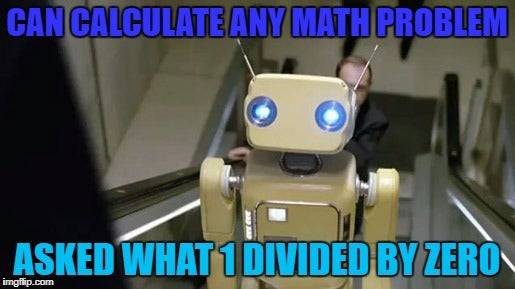













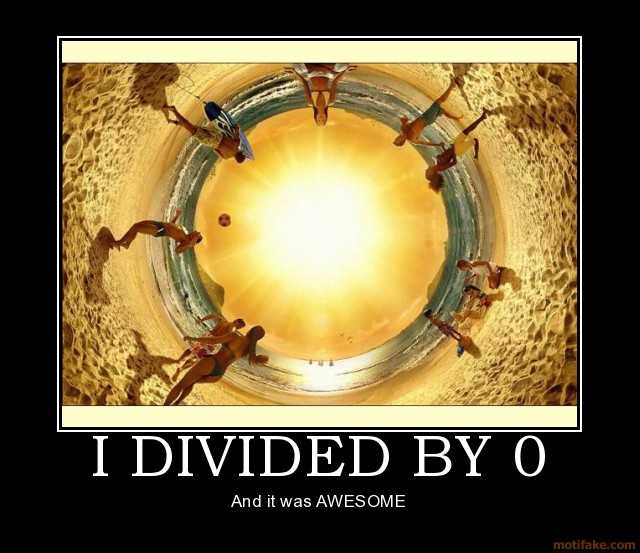

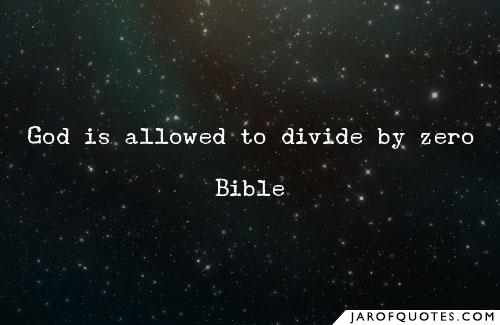


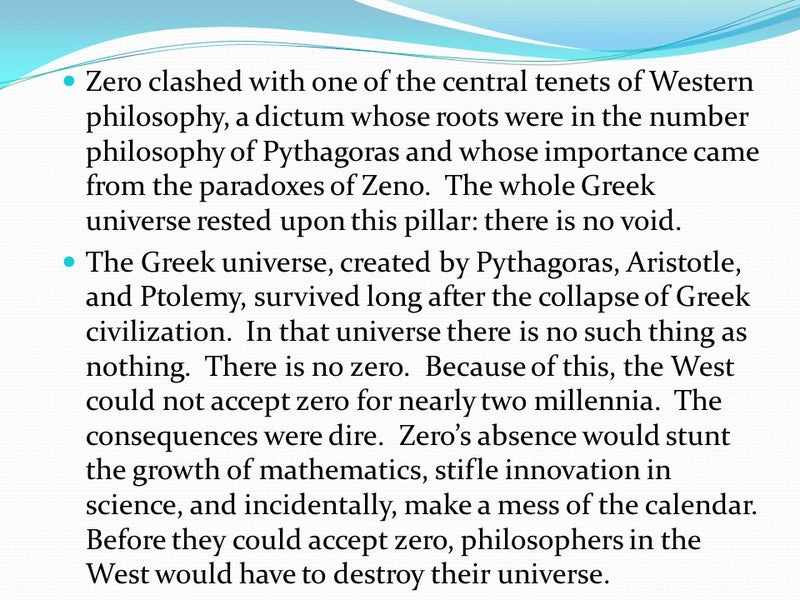











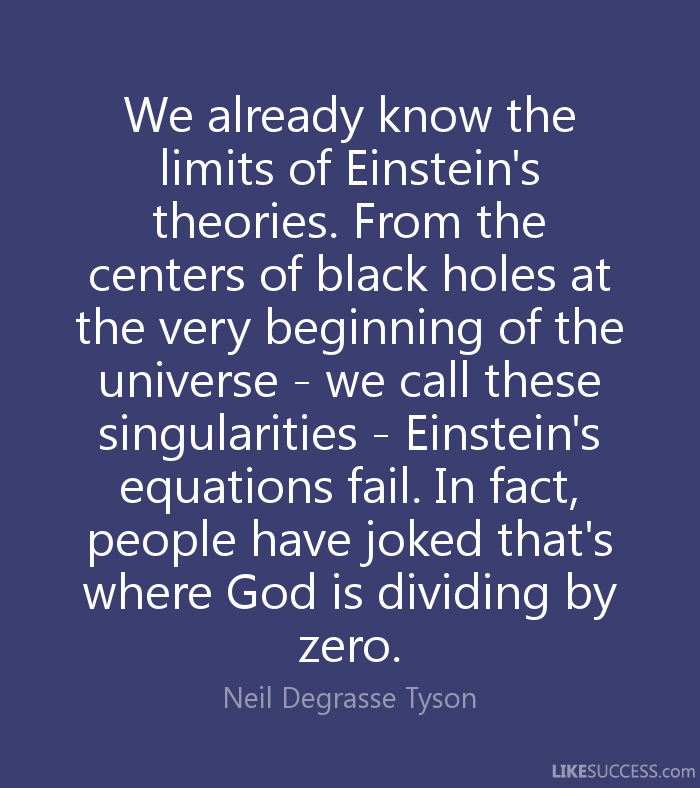
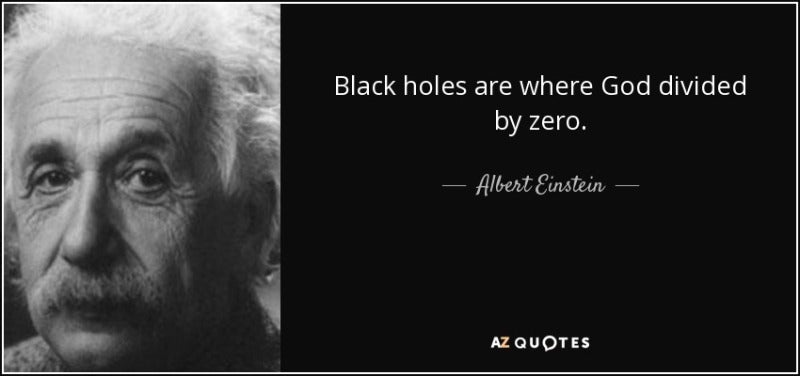








0 件のコメント:
コメントを投稿